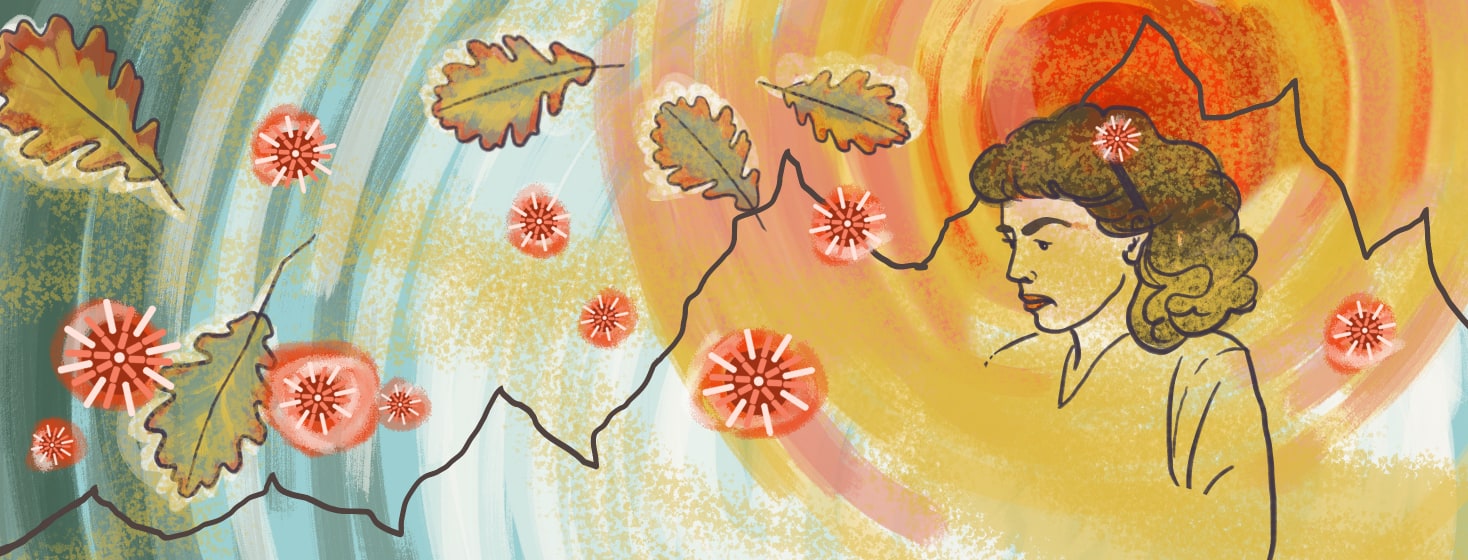How I Survive Asthma Peak Week
Asthma and allergy symptoms get worse when triggers stack on each other. In September, especially during Asthma Peak Week, pollens, mold, viruses, and more can cause severe asthma attacks that may need medical attention. This can include a trip to the emergency room (ER) or even hospitalization. Asthma attacks can take weeks, months, or longer to recover from. The more severe your attack, the more medicines it might take to manage it.
Prevention is key
All through September, I am extra careful to avoid asthma symptoms. I work with my asthma specialist to create an updated Asthma Action Plan, and I take all my medicines for asthma and allergies as directed.
Since viruses can contribute to asthma attacks, I get my yearly flu and COVID-19 vaccinations. The vaccines do not 100 percent protect us from catching either, but they do reduce the severity and length of the viruses as well as hospitalizations.
Ways I prevent asthma symptoms during peak week
At home
Since I work from my home, I focus most of my attention on reducing environmental triggers there. Here's what works for me:
- Clean twice a week. The recommendation is to vacuum with a HEPA filter vacuum and damp dust once a week, but during September, I try to clean more often. This includes wiping all surfaces with unscented disinfecting wipes.
- No shoes in the house. I try to follow this rule year-round, but I also ask any visitors to remove their shoes. Pollen and mold spores can spread through your home from your shoes.
- Wash up. To avoid catching or spreading a virus, I wash my hands often. After spending time outside, I change my clothes and shower before sitting on any furniture, including my bed.
- Use air purifiers. Air purifiers only work if they are large enough for the space. I have only 1 room-sized purifier, so I keep it in my office, where I spend most of my day. It takes a while to circulate all the room's air through the purifier, so I keep it running 24/7 during allergy season.
- Use a dehumidifier. I am allergic to dust mites, and they multiply in humidity. I live in a humid climate, so I use a dehumidifier from May through October. Indoor humidity levels should be no higher than 50 percent.
- Allergen spray. I use an allergen spray to reduce indoor allergens. The spray neutralizes mold spores, pet dander, and pollens.
In my car
We often don’t think about our cars when we are trying to avoid asthma and allergy triggers. However, they too can be a source of allergens. Here are some ways you can try to avoid asthma triggers in your car:
- When you can see the yellow pollen on your car, it’s time to rinse it. Clean the outside in an automatic car wash. If you rinse it off yourself, wear a mask to avoid breathing in the pollen.
- Clean the inside of your car. Wipe the hard surfaces inside your vehicle with a microfiber cloth or unscented wipe. Don’t forget to clean the inside of your air vents. Vacuum the seats and floors. This will remove any pollen that has accumulated inside your car.
- Change the air filter. Yes, cars have air filters that need to be changed. A mechanic can do this for you.
- Drive with closed windows, and use the “recirculate air” function. All cars have a ventilation choice to recirculate air instead of bringing fresh air from the outside in. Use this option when driving to keep allergens out.
When I'm outside
- I always carry my quick-relief asthma inhaler with me. You never know when you may encounter a trigger you were not expecting. If you have sudden symptoms, use your inhaler right away.
- Check the pollen counts. If you can, plan your activities for when pollen counts are the lowest. Pollen tends to worsen mid-day and evening, so plan outdoor activities in the early morning when possible.
- Premedicate. Talk with your doctor about using your quick-relief inhaler before going outside. It is standard practice to do this before exercise; the medicine opens your airways and reduces the chances of having symptoms.
What are your tips for preventing asthma symptoms during this time?
These are just a few ways I keep myself symptom-free during Asthma Peak Week. Do you do any of the above? What tips can you share?

Join the conversation